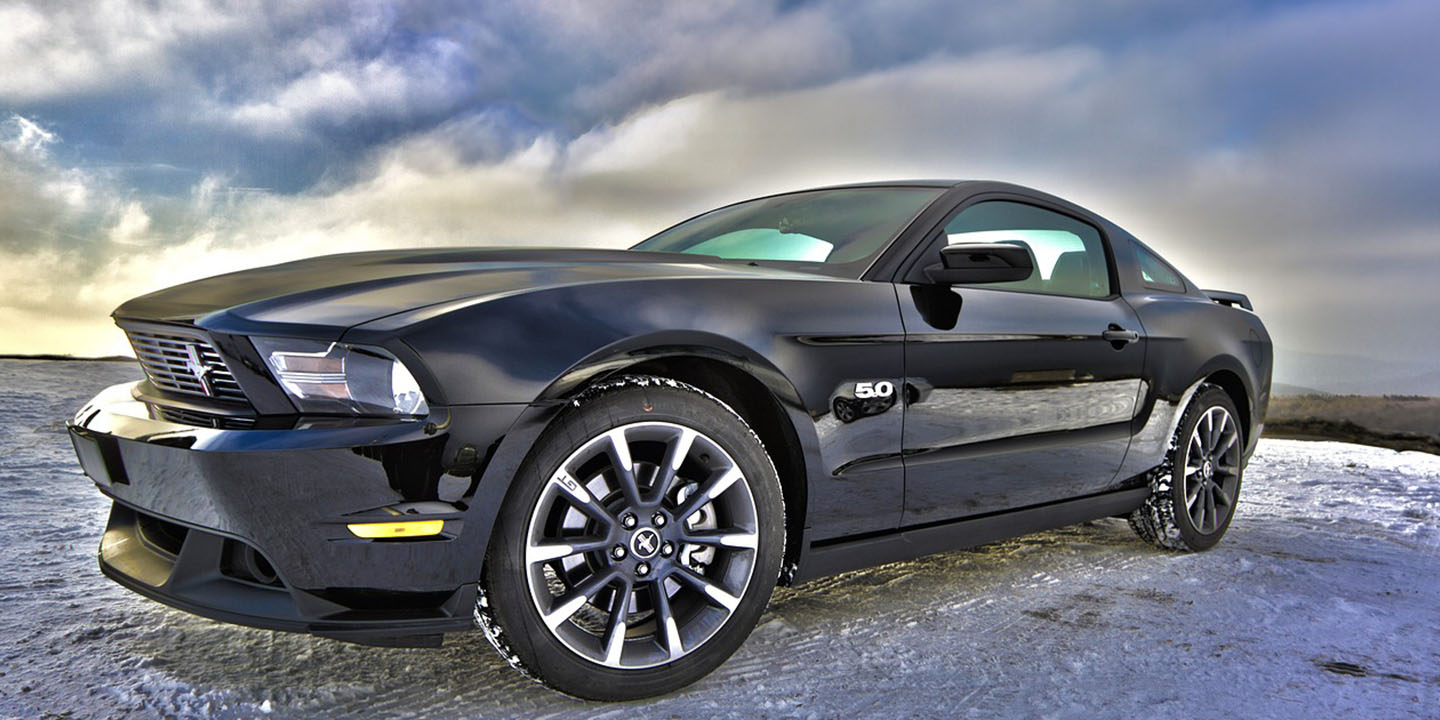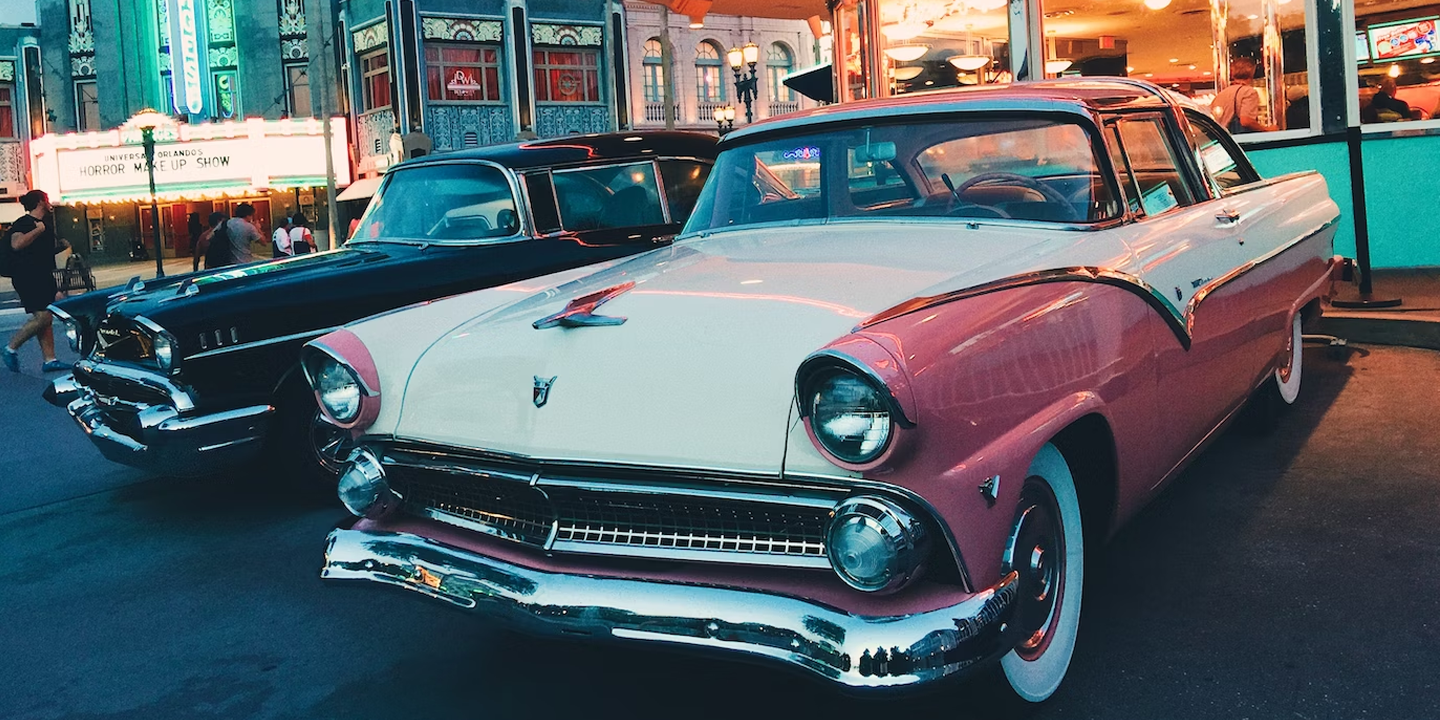10 Car Companies That Worked On EVs Before It Was Cool & 10 That Never Even Bothered
Early Adopters vs. EV Skeptics
EVs aren't just coming in—they’re winning. While people debate policy and weigh costs, the auto industry has already chosen sides. Some brands saw this change early and placed big bets, while others clung to combustion, ignoring the writing on the wall. If you're shopping, investing, or just curious where innovation's really happening, you’ll want to know who’s leading the charge and who doesn’t care.
1. General Motors
Before most drivers even knew what EVs were, GM launched the EV1 in the mid-90s. Although the project was abruptly canceled, it marked a significant milestone. The EV1 was a glimpse of the future, one GM saw before anyone else.
 RightBrainPhotography (Rick Rowen) on Wikimedia
RightBrainPhotography (Rick Rowen) on Wikimedia
2. Toyota
Known for the Prius, Toyota’s electric story actually began with the RAV4 EV in the late '90s. Before Teslas lined driveways, Toyota was quietly testing the waters, building electric SUVs when most brands were still tweaking gas mileage.
3. Honda
The Honda EV Plus didn’t receive much fanfare, but in 1997, it was a rare battery-electric vehicle that could be leased. While short-lived, it helped kick off Honda’s ongoing interest in electrification. Honda just built it, tested it, and moved on.
 Evplus at English Wikipedia on Wikimedia
Evplus at English Wikipedia on Wikimedia
4. Ford
You might not remember the Ranger EV, but Ford built it in the late 1990s. It wasn’t a bestseller, but it was real, electric, and street-legal. Ford dabbled, withdrew, and then came roaring back decades later with the Mustang Mach-E. The seeds, though, were planted early.
5. Peugeot
While rarely mentioned, Peugeot developed and sold over three thousand electric 106 models in Europe during the 1990s. It wasn’t a flashy move, but it showed real initiative. These compact EVs proved Peugeot was willing to commit when few others in Europe took electric vehicles seriously.
6. BMW
BMW’s obsession with engineering led to EV concepts as early as the 1970s. Decades later, the i3 brought those ideas to life with a quirky design and cutting-edge tech. Even if the model divided fans, BMW treated EVs as more than a regulatory checkbox.
 Mariordo (Mario Roberto Durán Ortiz) on Wikimedia
Mariordo (Mario Roberto Durán Ortiz) on Wikimedia
7. Tesla
Tesla didn’t invent the electric car—it just made people care. With the 2008 Roadster, EVs suddenly became alluring, fast, and viable. Elon Musk’s company reshaped public opinion and pressured legacy automakers to accelerate their efforts. Love it or hate it, Tesla’s early commitment was a cultural and industrial game changer.
8. Nissan
When Nissan launched the Leaf in 2010, it made a big bet. It wasn’t stylish or sporty, but it worked, and people bought it. The Leaf became the first genuinely global electric car success, demonstrating to the world that mainstream EVs were no longer a fantasy.
 Razvan Orendovici from United States on Wikimedia
Razvan Orendovici from United States on Wikimedia
9. Renault
Renault’s EV push wasn’t timid. With models like the ZOE and Kangoo Z.E., the French automaker embraced electric mobility for cities, fleets, and families alike. Rather than waiting for global trends, Renault made early moves to integrate EVs into everyday European life long before it was expected.
10. Mitsubishi
The i-MiEV rivaled many of its competitors in the market. Small, oddly shaped, and sold globally, it showed Mitsubishi wasn’t afraid to commit. Their EV legacy is consistent—proof of quiet innovation in a noisy, high-stakes race.
While these carmakers jumped on electric innovation decades ago, the next 10 years saw them lag behind or skip it entirely.
1. Subaru
All-wheel drive purists loved Subaru’s rugged reliability, but that loyalty didn’t extend to electrification. The brand stuck with boxer engines and hybrids for far too long. Only in 2022 did the Solterra finally appear, developed in collaboration with Toyota. Even then, it arrived underpowered in a rapidly maturing EV market.
2. Mazda
Mazda’s signature? Spirited driving, rotary engines, and a curious absence of electric ambition. When it finally launched the MX-30 EV in 2021, the car came with a bafflingly low range, and critics panned it. For a company known for engineering finesse, its electric debut felt hesitant, even misaligned with its brand.
3. Dodge
For decades, Dodge doubled down on muscle—horsepower, HEMI, and speed sold cars, not batteries. While others invested in electrification, Dodge stayed loud and proud, and it wasn’t until recently that they teased an electric Charger. It’s coming, they say, but for a brand that celebrates combustion, that pivot is going to be tough.
4. Chrysler
Chrysler is a part of the Stellantis auto group. While other Stellantis brands moved ahead with EVs, Chrysler stood still. The Pacifica Hybrid was a half-step; a full EV is still missing. The Airflow concept hints at change, but 2025 may be too late in a crowded market.
5. Jeep
Despite a rabid fan base and strong SUV heritage, Jeep lagged when it came to going electric. Plug-in hybrids helped somewhat, but for a brand so deeply rooted in off-road adventure, their first all-electric model didn't appear until 2024.
 Fiver, der Hellseher on Wikimedia
Fiver, der Hellseher on Wikimedia
6. Infiniti
Infiniti has long tried to define itself as a premium brand, but when it came to EVs, it offered nothing while rivals surged ahead. Despite being part of the same group as Nissan, Infiniti still hasn’t brought a single fully electric car to market.
 Clotee Pridgen Alloc… on Wikimedia
Clotee Pridgen Alloc… on Wikimedia
7. Buick
Part of General Motors, Buick could have ridden the EV wave with the Bolt or Cadillac’s innovations. Instead, it sat out the early years, relying on concept models and promises. A shift reached China with the Electra E5 EV, but it’s yet to reach the United States.
8. Fiat (US Market)
The 500e had potential, but Fiat treated it like a compliance car. It barely marketed the model, didn’t evolve the lineup, and eventually pulled back entirely in the United States. While Europe saw a new electric 500, American buyers were left behind.
 Stacy Sheff from Los Angeles, USA on Wikimedia
Stacy Sheff from Los Angeles, USA on Wikimedia
9. Lincoln
Luxury usually means leading innovation, but Lincoln didn’t get the memo. As its parent company, Ford, moved forward with electric vehicles, Lincoln continued to focus on traditional SUVs. No electric models have reached dealerships yet, though they’re promised soon.
10. Suzuki
Globally popular in developing markets, Suzuki hasn’t prioritized EVs at all. With virtually no electric vehicles in its lineup and a weak roadmap for electrification, it lags far behind. For a company that thrives on affordability and utility, its absence in the EV space is starting to feel like a liability.





















